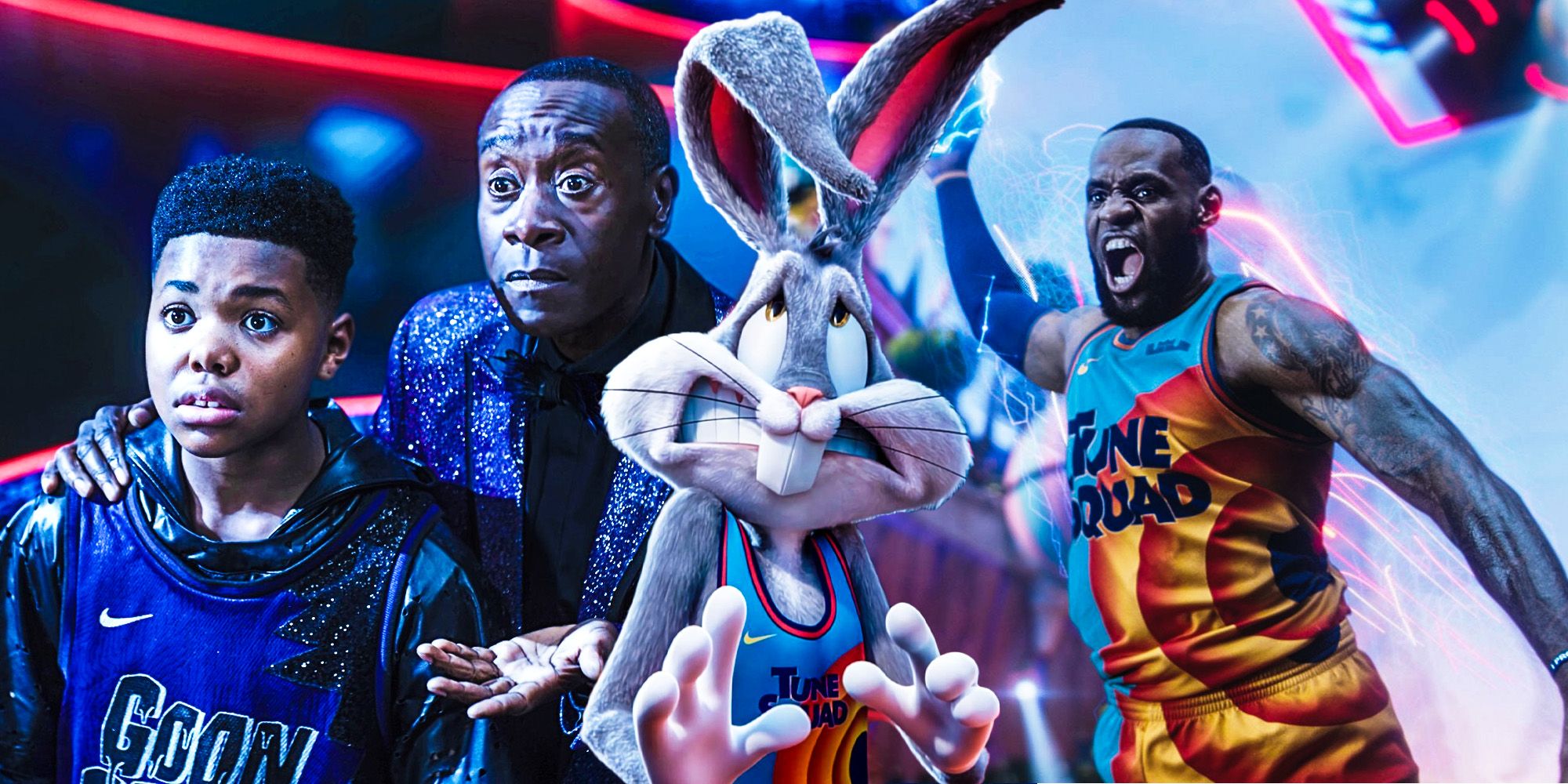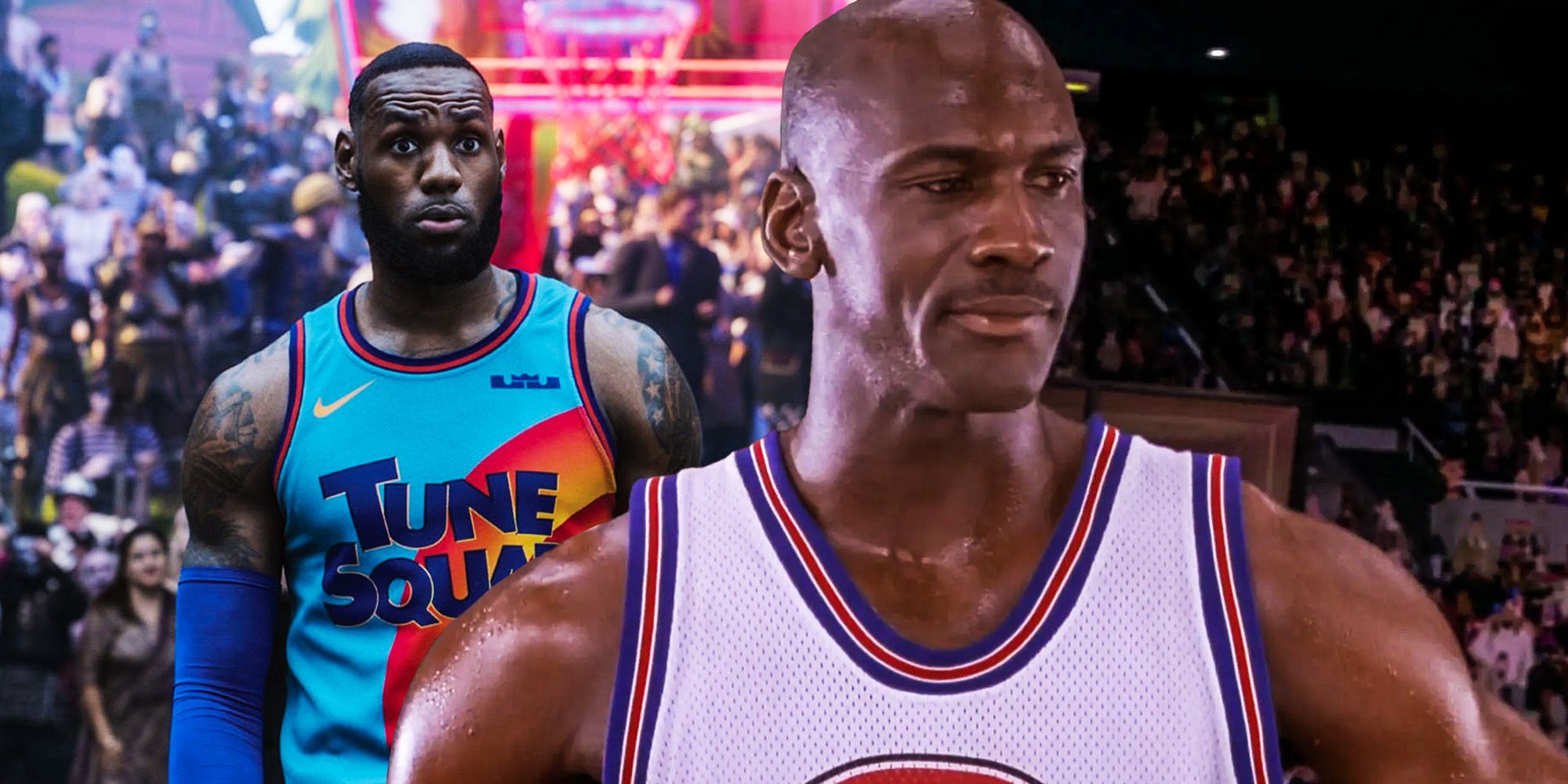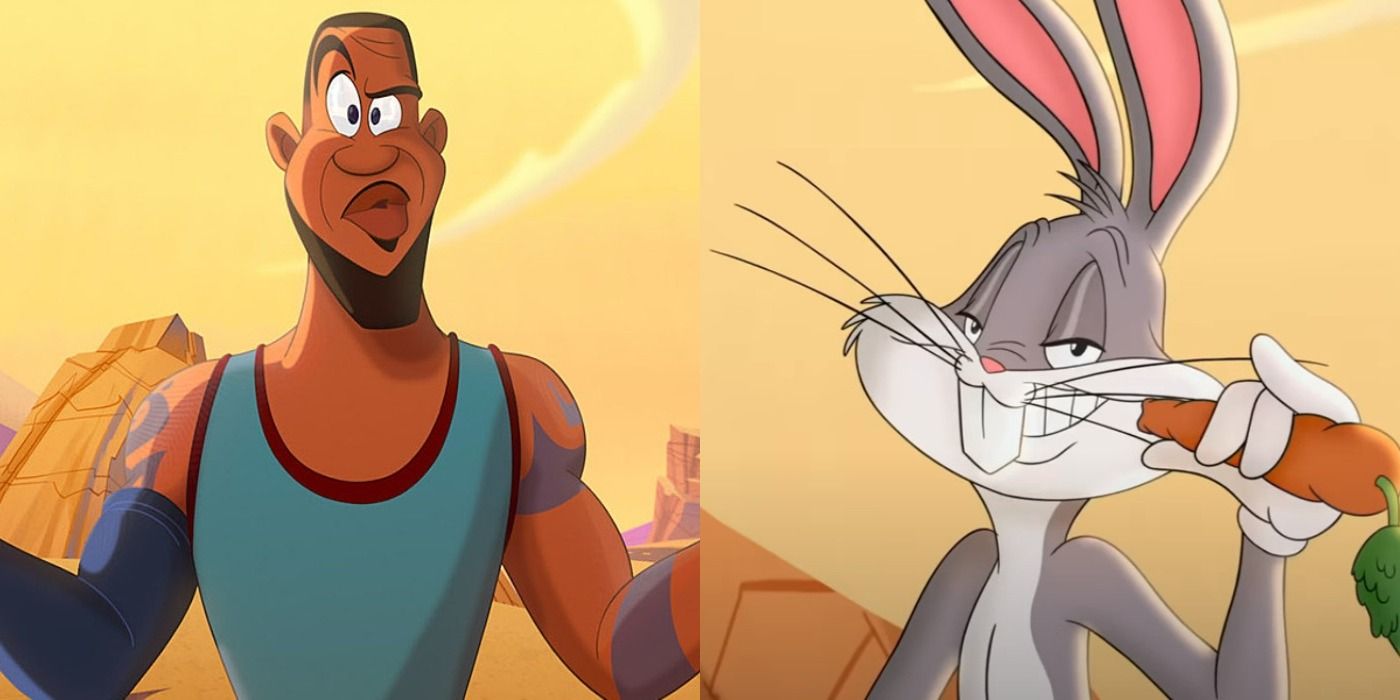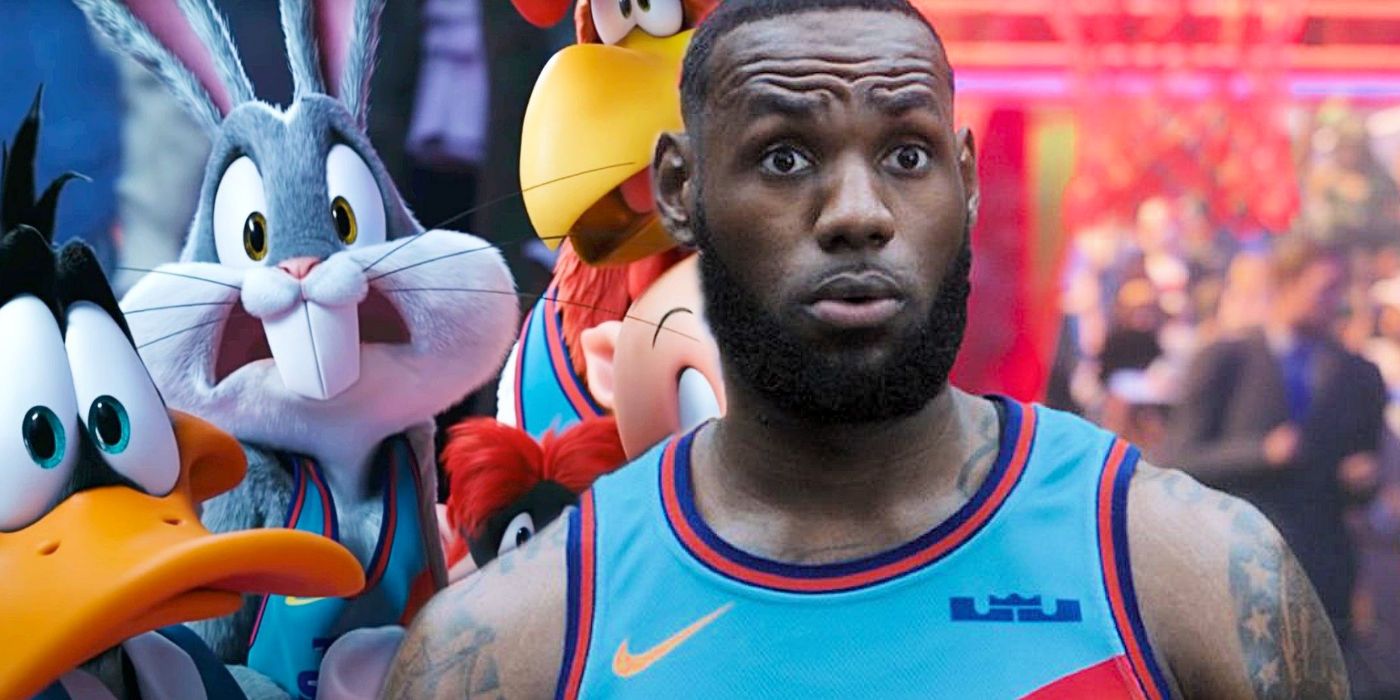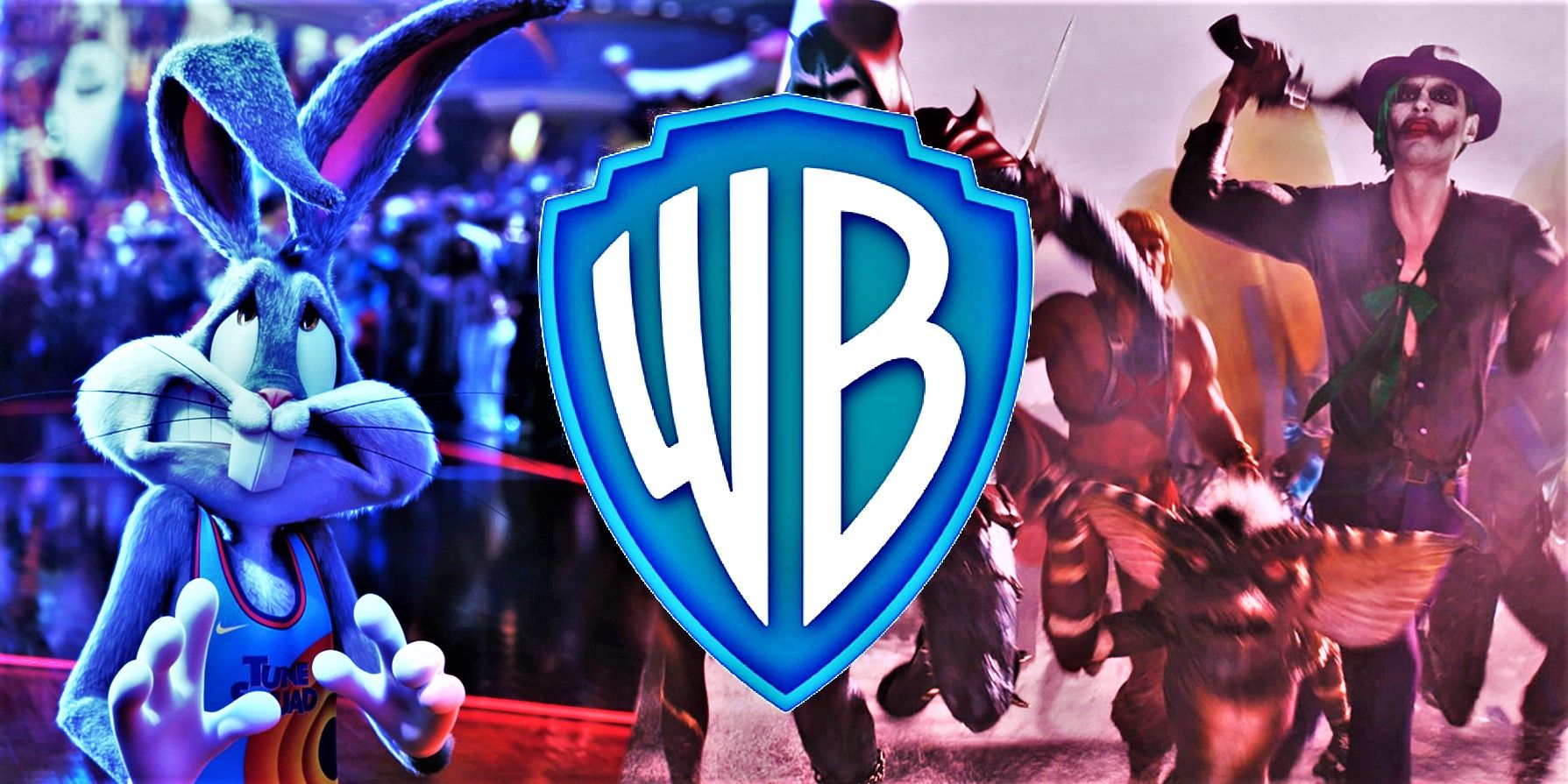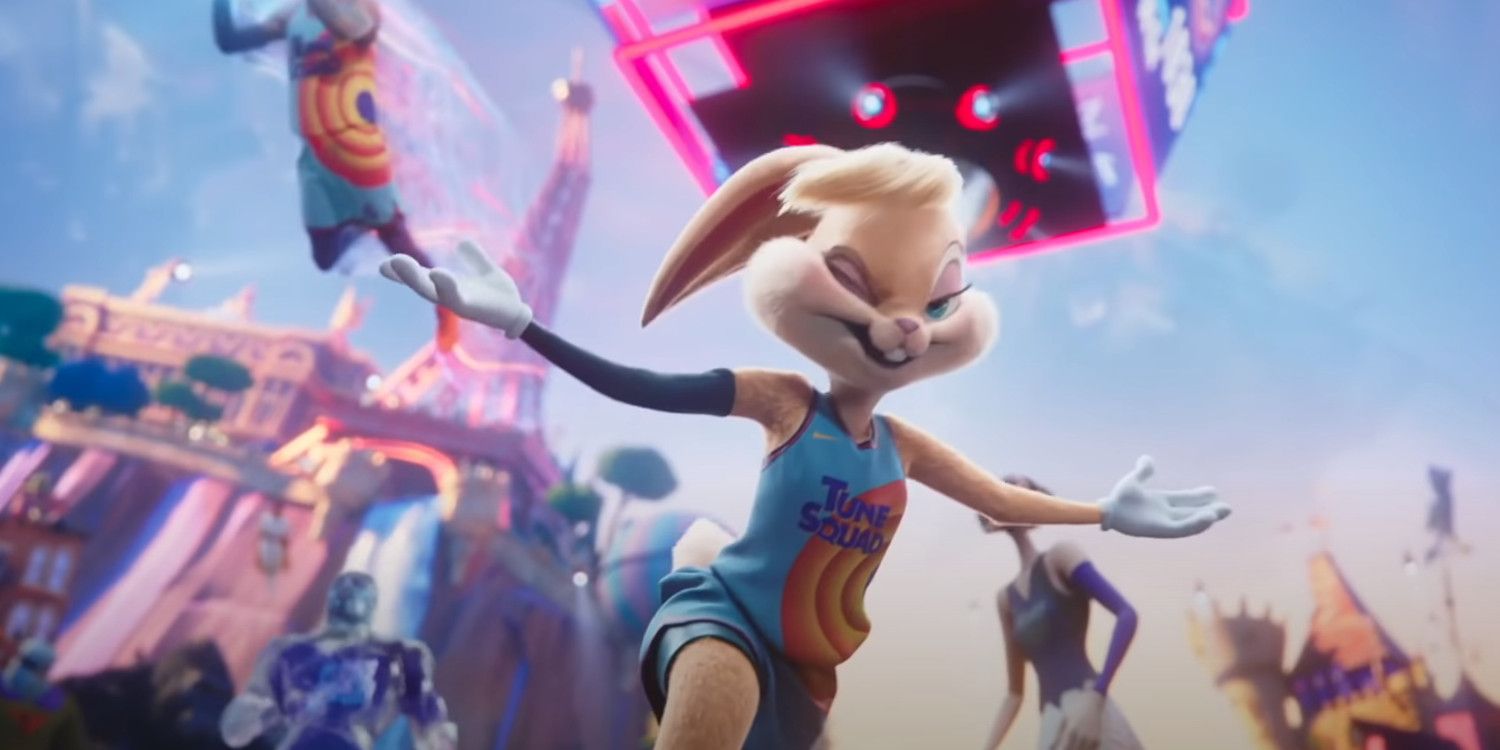The long-gestating sequel Space Jam: A New Legacy has finally been released in theaters and on HBO Max, and with comparisons to the original coming into focus, it's worth investigating what went wrong with this LeBron James vehicle. The oddball combination of Michael Jordan and Bugs Bunny proved remarkably potent in 1996, helping to fix a now-iconic narrative to His Airness' mid-90s career and revitalize interest in the Loony Tunes. Naturally, a lucrative hit begets sequel discussion, but the hypothetical project labored in limbo for many years. It wasn't until the James vs. Jordan debate really began heating up that LeBron's version became inevitable. But now that it has at last arrived, it's clear A New Legacy lacks some of what made Space Jam work in the first place.
Veteran director/producer Ivan Reitman first had the idea to pair Michael Jordan and Bugs Bunny in the early 90s, and despite some commercial collaborations between the two, the notion of a feature project was shelved with Jordan's first retirement from basketball in 1993. When he returned to the NBA in 1995, production recommenced with a script that integrated Jordan's then-current personal and professional state into the zany Tunes-laden narrative. The resultant film was a massive commercial success and cultural touchstone (albeit a critical flop), and Warner Bros. had their sights set on a sequel as soon as credits rolled at the premier.
Jordan, however, did not agree to return for a second Space Jam, and so the project sought a long list of potential athlete collaborators for the Space Jam sequel, including Tony Hawk, before fizzling out. When LeBron James' prominence began to beg the Jordan comparison, the choice was clear as to who could revitalize the IP: the Chosen One. After several delays, Space Jam: A New Legacy eventually opened to a sizable box office return in July 2021 but received criticism for its story, product placement, and acting—not unlike the original. But as it turns out, A New Legacy's problems run deeper than merely the flaws it shares with its predecessor.
Space Jam: A New Legacy Lacks Cultural Context
Space Jam is, generously, an entertaining movie, but its massive success owes less to cinematic quality and more to cultural iconography. Michael Jordan was incomparably ubiquitous in the 90s, and his retirement shook not just the basketball world, but the broader American zeitgeist. Whether due to the death of his father or unsubstantiated claims of gambling debts, Jordan's retirement, baseball stint, and return to NBA glory presented an opportunity for Space Jam to capitalize on a preexisting story that would engage directly with the culture of the moment. The script allows audience members to affix a singular narrative to Jordan's tumultuous years away from the game. He retired to play baseball because of the loss of his father, was simply too competitive to languish in the minors, and rediscovered his love for the game, all while resurrecting the Loony Tunes IP. Say what you will about the pacing, acting, or even haphazard world-building, but for all its flaws and disparate elements, Space Jam manages to coalesce these into an absolute tour de force.
If Space Jam's reason for being boils down to "explain Jordan's basketball hiatus," Space Jam: A New Legacy exists solely because "Jordan did it, so now LeBron must do it." Fair or otherwise, the kid from Akron has borne the burden of Jordan comparisons for most of his illustrious career. Given how influential Space Jam proved in catapulting MJ from athlete to entertainment mogul, it wasn't long before LeBron's take on the IP became unavoidable. But for all the narrative potential of LeBron's basketball career—"The Decision," the return to Cleveland, coming back from 3-1—the film arrives too late in James' story to capitalize on the juiciest moments. Where Jordan's version constantly plays with the notion of his inevitable return to the game, LeBron's has nothing to wink at except perhaps a relatively benign fifth title, which it ignores.
Space Jam: A New Legacy Has A Bad Story
As a result, Space Jam: A New Legacy loses what cultural import helped elevate the original from "bad movie" to "cultural touchstone." The threadbare plot and tired premise can't disguise their flaws with the shock and awe of seeing two larger-than-life characters—MJ and bugs—share the big screen, each with their own real-life stakes on display. The brilliance of Space Jam was its synergy with actual events, whether they be Jordan's comeback or the Tunes' return to relevance. A New Legacy displays no such leverage. Whereas the original delights in pop culture references with an admirable reckless abandon, this film offends as a cash grab in attempting to do the same. Warner Bros.' presence in the script as an integral plot element surely contributes to this feeling of cheapness. The incorporation of contemporary aesthetics does its best to rescue a fundamentally unnecessary movie, but no amount of gaming or algorithms or Don Cheadle could save this story—more stupid than silly, less loony than lame.
What's more, the story fails to execute its setups and payoffs as successfully as its predecessor. The Tunes' conversion to 3D feels entirely unsubstantiated, especially as a product of the villain's power, leaving viewers to question his motivations for, or the consequences of, the transformation. Bugs' sacrifice carries no weight, as his immortality is well-documented and even stated upfront. Despite creating several potentially interesting conflicts—Bugs feeling abandoned by the Tunes, LeBron forcing his son into a predetermined path, Warner Bros.' anthropomorphized algorithm struggling for recognition—it fails to commit to any one wholeheartedly, and ends up doing a mediocre job with each. Perhaps original director Terence Nance may have explored these in a more unique and cinematic way, reminiscent of his offbeat variety show Random Acts of Flyness, but the production replaced him with workman Malcolm D. Lee (The Best Man, Girls Trip, Night School) in pre-production.
LeBron James Is A Bad Actor
Among the most common criticisms levied at Space Jam is the notion that Michael Jordan is a bad actor. While he's more than serviceable playing against human counterparts, he runs face-first into the learning curve when his scene partners turn to green screen. Shaq holds the dubious distinction of "worst acting performance from a former NBA star," as Kazaam in the eponymous 1996 release, but Jordan's role that same year looms large. LeBron James, meanwhile, had a memorable (and not insignificant) role in the Judd Apatow comedy Trainwreck (2015), bolstering the push for LeBron to beat Jordan's Space Jam performance and chalk up another tally in his column. But reports of LeBron's acting prowess were greatly exaggerated.
LeBron James is a media icon, and his move to the Los Angeles Lakers cemented his status as a multi-hyphenate mogul—athlete, businessman, entertainer, etc. But his performance in Space Jam: A New Legacy simply leaves much to be desired. For as charismatic a presence as he is, you wouldn't know it from his wooden delivery of saccharine, Pinterest-board clichés in this movie. Rarely does he play any emotion that isn't immediately legible on the surface. The writing doesn't do him any favors either; Jordan benefitted from a character that feels truer to his actual self, and you buy his frustration as he swings in vain for strike three. LeBron may be an overbearing parent—he did name his firstborn LeBron, Jr. after all—but his performance is too broad and one-note to relate to any tangible real-life intrigue.
Beyond the King, the very capable Don Cheadle phones it in as Al-G Rhythm, the Warner Bros. algorithm who falls far short of the archetypal model set by the titular character in 1991's father versus son fantasy adventure Hook. The child performers also offer little to save the film, whether they be young LeBron (Stephen Kankole), his fictionalized son Dom (Cedric Joe), or Malik (Jalyn Hall). Simply comparing each Space Jam film's flashback-style opening scenes reveals the disparity in emotional effectiveness between the two films: Jordan's connection with his father, and LeBron's disdain for distractions.
Space Jam: A New Legacy Is Too Reliant On Warner Bros. References
Space Jam as a franchise is, essentially, a massive commercial. The original film's director, Joe Pytka, was a famed creator of ad spots featuring, among others, top NBA talent, hence his getting the Jordan-vehicle gig. Stan Podolak (Wayne Knight) said it best in the 1996 release: "C'mon, Michael, it's game time. Slip on your Hanes, lace up your Nikes, take your Wheaties and your Gatorade, and we'll grab a Big Mac on the way to the ballpark." But for all the selling the original film did, A New Legacy does more—and does it worse. Maybe it's the fact that the sequel wears its cash-grab reputation on its sleeve, or maybe it's because Warner Bros. the corporate entity features so heavily in the story itself, but Space Jam's salesmanship feels far less laborious than that of the problematic A New Legacy.
With all the references to Game of Thrones, DC Comics, and the Wizarding World of Harry Potter, it's clear the intended takeaway from A New Legacy is not "LeBron James sure is amazing," but rather "Warner Bros. sure has an extensive catalog of IP on which to spend money." Perhaps it's the specificity of the product placement that makes for such a sweaty approach, as all the most prominent advertisers are Warner Media properties rather than sports drinks, outfitters, or restaurants. Or maybe it's the reliance on products as pop culture references rather than the star personas that feature in the original, including Bill Murray and Larry Bird, among others. Whatever the underlying reason, the result is the same: A New Legacy is more focused on selling other products than turning out a good product on screen.
Everything That Went Right With Space Jam: A New Legacy
For all these problems, there's plenty that Space Jam: A New Legacy does well. The film uses some interesting ideas to modernize a concept so firmly rooted in its moment. Using technology in the script, as both the villain Al-G and Dom's heroic passion, touches on the anxieties and interests of modern audiences in a fresh way. LeBron as an overbearing parent is an interesting concept to run with (although the intrigue extends only insofar as the execution). The film makes ample use of iconic Looney Tunes gags intrinsic to the animation medium, even at times surpassing those of the original. For every miss (the Porky—The Notorious P.I.G.—rap, for instance), there's a hit; animated LeBron rotating his hair and beard upon entering the Tunes' world demonstrates a classic Chuck-Jonesian touch. And animating LeBron helps solve the original's acting-against-green-screen problem, as James proves a perfectly serviceable voice actor. The variety of competing animation styles, for which segments of Spider-Man: Into the Spider-Verse (2018) were praised, provides ample visual interest, and the scale of the film feels adequately large for its subjects. Desexualizing Lola Bunny was a marked improvement over the original's most poorly-aged element, and the 3D character renders look spectacularly photorealistic.
Space Jam may not measure up as a film to its reputation as a piece of iconography, and Space Jam: A New Legacy may not measure up to its predecessor on either front, but it does what it was designed to do. It reanimates IP old and new, extends LeBron's cultural latitude as he prepares for his post-playing career, and makes money—a lot of money. For all its director changes, amateurish acting, ridiculous writing, and misguided referencing, the film offers a fun athletic adventure for the whole family. Whether basketball fans prefer the original or the sequel ultimately pales in comparison to the main show: who's the G.O.A.T.—LeBron or Jordan?

